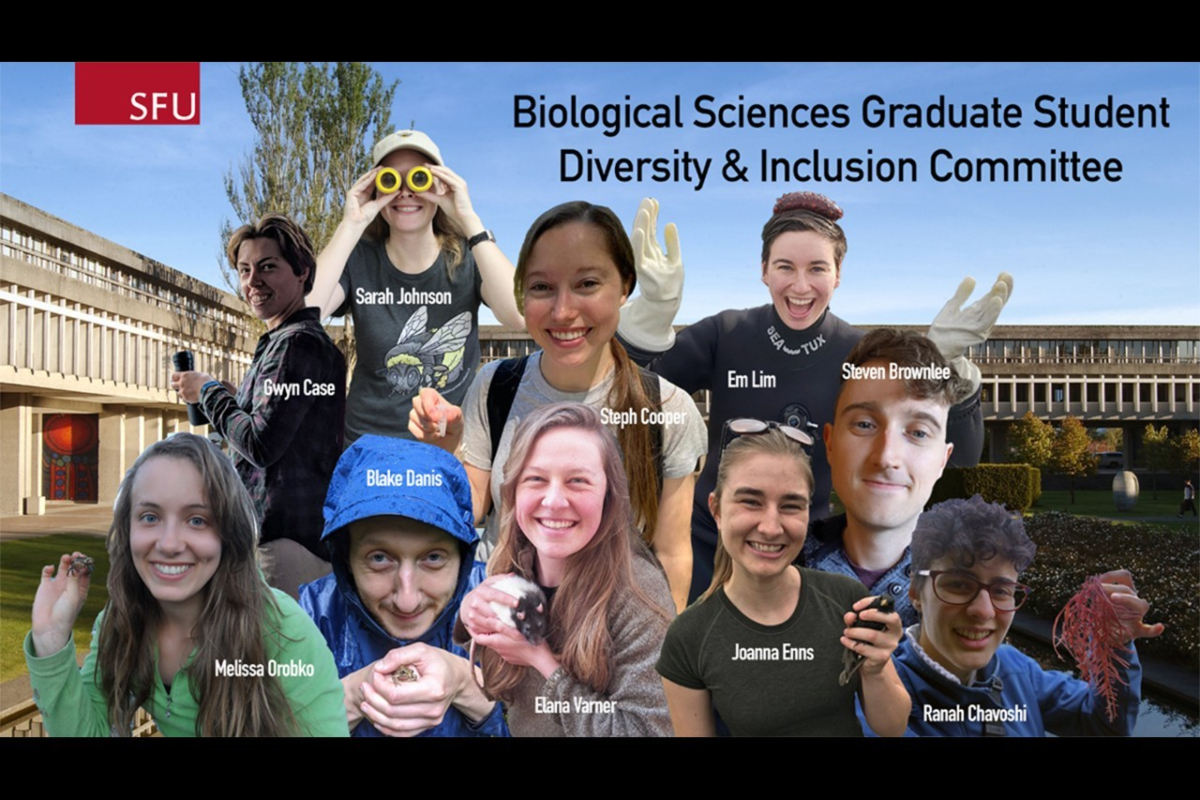Supporting Indigenous and Black scientists

When Ranah Chavoshi and fellow members of the Biological Sciences Graduate Student Equity, Diversity and Inclusion Committee looked into enrolment records in 2021, they found that the biology graduate program welcomed 160 students over the past eight years. Of that number, there were only four Indigenous students and two Black students—a demographic that the committee was determined to change.
As the Black Lives Matter movement gained international attention amidst the COVID-19 pandemic, the committee felt that it was right time to address two issues: the systemic barriers to higher education for under-represented students, and the vital need for diversity in science.
“We want to see science accessible for all, but we know that Black and Indigenous students aspiring to be academic scientists have, historically and in the present, faced structural barriers and biases,” says Ranah. “On the other hand, you see multiple studies prove that diverse teams have better scientific outcomes—think about when researchers around the world were collaborating to find a vaccine for COVID-19, and what a beautiful example this is of what different perspectives can do.”
To help SFU take one step toward building a more racially equitable and inclusive biological sciences department, the committee came up with the idea to establish the Indigenous and Black Graduate Scholarship in Biology.
The committee volunteered more than 500 hours of their time and, with the help of SFU faculty Mary Catherine Kropinski and Isabelle Côté as well as members of the Faculty of Science Advancement team, were able to successfully launch the scholarship.
“We consulted with SFU’s Indigenous communities and Black Caucus to see that the terms for the scholarship were appropriate,” says Ranah. “We wanted to make it low barrier and easier for people with non-linear or atypical paths to apply, like Indigenous peoples who are healers in their community, and who may not possess a traditional degree.”
To ensure that the scholarship could, in perpetuity, provide one Indigenous or Black student per year with $1,500, the committee set out to raise enough funding to endow it. The goal was to raise $30,000, with an anonymous donor generously offering to match all donations up to $15,000. The committee, however, exceeded their original goal and raised over $45,000 with the support of more than 330 donors.
“If you look at SFU or any other institution, you see diversity at the undergraduate level, but somehow we lose much of that as you advance further into academia,” says Ranah. “This scholarship doesn’t resolve these issues, but it’s one small way to help people get their foot in the door.”
The Indigenous and Black Graduate Scholarship in Biology will be awarded for the first time in Fall 2023. While Ranah and other committee members who worked on the scholarship have since stepped down from their roles, they feel assured knowing that there is a legacy of funding available for future students.
“This wasn’t just a one-time project for us,” says Ranah. “We wanted to see the legacy grow, be sustainable and stand the test of time.”
You can support the Indigenous and Black Graduate Scholarship in Biology or visit the Graduate and Postdoctoral Studies website to learn more about how to apply.
